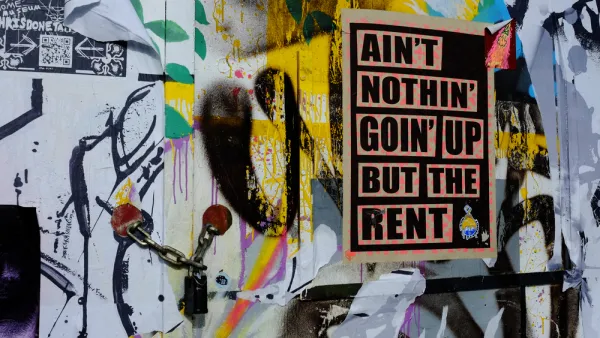The San Francisco Board of Supervisors voted earlier this week to allow property owners to rent “in-law units”—a major policy departure that could add tens of thousands of rental units to the constrained San Francisco real estate market.
Marisa Lagos reports on legislation that could potentially allow an estimated 30,000 to 50,000 existing in-law units to enter the rental market in San Francisco.
Despite the soaring cost of housing in San Francisco, the vote wasn’t without opposition. From the article by Lagos: “On Tuesday, the board voted 8-2 to let property owners voluntarily apply to legalize units built before Jan. 1, 2013. The vote came after more than an hour of debate and several attempts by Supervisor Norman Yee to weaken board President David Chiu's position. At a recent hearing, dozens of homeowners from Yee's district west of Twin Peaks turned out to vehemently oppose any attempts to legalize in-law units.”
The opposition from the west side of the city came from neighborhoods, whose residents have traditionally honored private contracts that detail rental rules for the neighborhood. A provision in the new law states that the city will not interfere with such agreements.
To pass muster for the legal rental market, “[property] owners will be allowed to ask city officials to ‘prescreen’ their units and, if any necessary upgrades are too expensive or difficult, the homeowner could drop his effort to legalize the unit without penalty.”
“To protect renters of the units - many of whom are low-income families and immigrants, according to Chiu - any legalized units would be covered by the city's rent-control ordinance and could not be sold as condominiums. The legislation also bars landlords from passing on to tenants the costs of upgrades to bring the apartments up to code and prevents property owners who have evicted someone in the past 10 years from legalizing their units.”
FULL STORY: S.F. supervisors vote to bring in-law units out of shadows

Analysis: Cybertruck Fatality Rate Far Exceeds That of Ford Pinto
The Tesla Cybertruck was recalled seven times last year.

National Parks Layoffs Will Cause Communities to Lose Billions
Thousands of essential park workers were laid off this week, just before the busy spring break season.

Retro-silient?: America’s First “Eco-burb,” The Woodlands Turns 50
A master-planned community north of Houston offers lessons on green infrastructure and resilient design, but falls short of its founder’s lofty affordability and walkability goals.

Test News Post 1
This is a summary

Analysis: Cybertruck Fatality Rate Far Exceeds That of Ford Pinto
The Tesla Cybertruck was recalled seven times last year.

Test News Headline 46
Test for the image on the front page.
Urban Design for Planners 1: Software Tools
This six-course series explores essential urban design concepts using open source software and equips planners with the tools they need to participate fully in the urban design process.
Planning for Universal Design
Learn the tools for implementing Universal Design in planning regulations.
EMC Planning Group, Inc.
Planetizen
Planetizen
Mpact (formerly Rail~Volution)
Great Falls Development Authority, Inc.
HUDs Office of Policy Development and Research
NYU Wagner Graduate School of Public Service




























